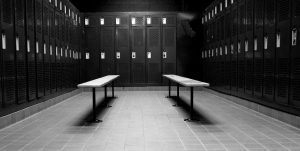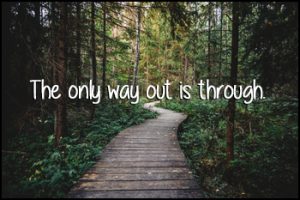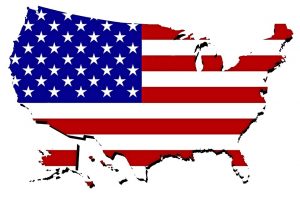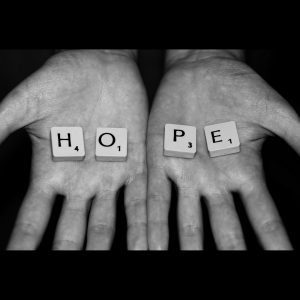delivered at The Unitarian Society
This sermon was preceded by a reading of Marge Piercy’s For Strong Women.
 Let’s be clear from the start. That was not locker room talk. It was not just banter among the guys, somehow normal and acceptable. That was not even sex talk: it was sexual assault talk.
Let’s be clear from the start. That was not locker room talk. It was not just banter among the guys, somehow normal and acceptable. That was not even sex talk: it was sexual assault talk.
Like many of you, I am heartbroken and hurting. This has been a rough week. Or two. Or more. Just when I thought it could not get worse in our electoral landscape, the low you cannot go below went even lower.
I am heartbroken and wondering how to speak to the pain without making it hurt more for you. I am heartbroken and wondering how you are: you as a strong woman or a decent man or a human being who feels the weight of what is going on. I am wondering how you are in this climate where fear is being actively induced, hatred being actively stoked. I am wondering if you share my fear, my not knowing how we as individuals or we as a nation are going to get out of this intact and whole.
 Here’s the thing: to get out of hell – for surely this election cycle is the most hellish in living memory — the only way out is through. So with a trigger warning that I am going to preach about some hard and emotional things today – sexual assault, violence, misogyny, xenophobia — I offer a little prayer that the words of my mouth and the meditations of my heart might be a healing salve in time of deep hurts and echoes of past wounds. I offer these words to you, into this place of truth-telling, justice-seeking, compassion-cultivating of our collective making.
Here’s the thing: to get out of hell – for surely this election cycle is the most hellish in living memory — the only way out is through. So with a trigger warning that I am going to preach about some hard and emotional things today – sexual assault, violence, misogyny, xenophobia — I offer a little prayer that the words of my mouth and the meditations of my heart might be a healing salve in time of deep hurts and echoes of past wounds. I offer these words to you, into this place of truth-telling, justice-seeking, compassion-cultivating of our collective making.
Something is wrong in our nation. Deeply wrong. I know it. I think you know it. Do you know it? Yes, something is deeply, profoundly wrong.
 When a presidential candidate can say things like, “I could shoot somebody and not lose voters,” and have it be possibly true, something is wrong. When a presidential candidate can call for the closing of our borders to a whole religious group, something is wrong. When reliable projections of voting behaviors tell us that if women don’t vote, one candidate will win – and then supporters of that candidate suggest that the 19th amendment – the one that granted women the right to vote in this country less than one hundred years ago – be repealed, something is undeniably, tragically, woefully wrong.
When a presidential candidate can say things like, “I could shoot somebody and not lose voters,” and have it be possibly true, something is wrong. When a presidential candidate can call for the closing of our borders to a whole religious group, something is wrong. When reliable projections of voting behaviors tell us that if women don’t vote, one candidate will win – and then supporters of that candidate suggest that the 19th amendment – the one that granted women the right to vote in this country less than one hundred years ago – be repealed, something is undeniably, tragically, woefully wrong.
When a powerful individual running for the highest public office in the land can speak, as First Lady Michelle Obama described so fiercely on Thursday, “freely and openly about sexually predatory behavior,” bragging and then rationalizing, something is deeply wrong.
Some have tried to explain it away:
Inevitable.
Inherent male biological drive.
But we know better. We know the truth and we teach our children in Our Whole Lives sexuality education. It is the values we try to live our lives by:
- consent is not only necessary, it is desirable and sexy;
- our human sexual impulses and our human bodies are beautiful in all their shapes — they can and should be sources of joy, not shame;
- how we enact sexual desire is volitional, not some predetermined biological behavior;
- acting on such impulses without mutual consent is not about sexuality, but is about power and violence.
Yet, those gas-lighting explanations are in the airwaves, are propagated in the media, are adopted by some of our neighbors, and they are out there for our children, for our own psyches, to absorb and contend with.
Something is wrong in our nation, our culture, our society, yet the wrong goes back much further, is much wider than this election cycle or much vaster than the wake of harm caused by one man. Because in this country, according to the nation’s largest anti-sexual violence organization, one in six women and one in 33 men (and some organizations place these numbers higher) will experience sexual assault at least once in their life, and some will experience it more than once. Because there is violence in families, lurking and stalking like that which was evoked during the debate last week. Many of us have grown up with such violence and some of us experience it in our current relationships.
So with all this threatening talk, all this evidence of violence and violation, there is a large portion of our human family feeling especially vulnerable right now. Trauma leaves a lasting mark. There can be healing, I testify to that personally, but such violation leaves you changed forever: sometimes a clear-headed survivor warrior, sometimes a fierce mama bear, sometimes an exhausted and hurting tender soul.
I say this to you because that kind of treatment of women impacts us all, regardless of gender. It harms our girls, it harms our boys, it harms all our children, shaping the kind of adult they will turn out to be. That talk invokes the threat of sexual intimidation, the threat of violence on all female-identified people, cisgender and transgender women alike. It harms adults and our ability to trust one another across genders.
For those of us who have a history of trauma, it touches memories of harm done to us in the past. This is called a “trigger reaction,” “which happens when a survivor experiences some event that feels familiar in some way to the original traumatic event … suffered before.” (thank you, Rev. Dawn Fortune) For some of us, it leaves us like we are walking through molasses or pushing that lead coffin lid; for others it makes us reactive to most everything, including those whom we love and who love us. It can present like panic, nausea, headaches, a whole host of symptoms, paired with later drops in our adrenaline levels that can leave us exhausted, fuzzy-headed, irritable, self-blaming.
If this is happening in your life, or in the life of someone you know, please know you are not crazy, you are not out of your mind. In fact, what is likely happening is that you are in your body, having a physiological reaction to the danger we are experiencing in our shared common life. Sometimes it touches on that part of us who has been victim; sometimes it touches that part of us which has been aggressor.
Therapists are reporting an increase in these symptoms; some of those therapists relate this directly to what is happening in our election cycle. My minister colleagues across the country are reporting it as well. If you recognize yourself in this description, please know that you are not alone. None of us is alone. I am here to be of support. As are others.
Whether you have a history of trauma or not, you, like our whole nation, are doing the best we can to survive in the midst of an increasingly hellish nightmare with its ever-present a strain of authoritarianism, of violent suppression, of xenophobia, of gender violence, of systemic racism has been re-awakened in our nation. It is and has been part of our nation’s founding story if we listen to all the versions of history, instead of just that of the victors. It has raised its ugly head at different times, at varying degrees of damage throughout our history, and now it sure seems like we are in the midst of the most complex and potent form yet.
What psychology tells us, what our Unitarian Universalist principles and values tell us, is to survive and thrive, we do so by taking active part in our own, and our family’s, and our wider human family’s, healing.
***
The same poet of our powerful reading today wrote the following line in a different poem:
…tomorrow and the next day make me shudder equally with hope and fear.
That sure sounds like my reality these days.
So far I’ve named the fear (and danger) part of the equation. No doubt your heart is asking, where is the hope?
 I see hope in women choosing to not staying silent, not allowing “locker room talk” to be the last word for predatory acts. People of all genders are speaking out against what is called “rape culture,” defined as condoning physical and emotional terrorism against women as the norm, assuming sexual violation as inevitable. Friday before last, just after the release of the now-infamous tape with that vulgar conversation, author Kelly Oxford put out into the Twitterverse an invitation for women to share their first experience of being sexually assaulted. Her tweet said: “Women: tweet me your first assaults — they aren’t just stats.” So far, over thirty million responses – women sharing their experience or others expressing support from all over the world, joining their truth-telling voices in solidarity against this misogynist culture.
I see hope in women choosing to not staying silent, not allowing “locker room talk” to be the last word for predatory acts. People of all genders are speaking out against what is called “rape culture,” defined as condoning physical and emotional terrorism against women as the norm, assuming sexual violation as inevitable. Friday before last, just after the release of the now-infamous tape with that vulgar conversation, author Kelly Oxford put out into the Twitterverse an invitation for women to share their first experience of being sexually assaulted. Her tweet said: “Women: tweet me your first assaults — they aren’t just stats.” So far, over thirty million responses – women sharing their experience or others expressing support from all over the world, joining their truth-telling voices in solidarity against this misogynist culture.
It is like she was a Number One standing up to Red, the bully, encouraging others to claim their reality, to take pride in the shape and color of their body and come together, and proclaim their right to live their lives as whole souls, not under threat.
Where is more hope? In more and more women speaking up, discarding the sense of isolation and shame, to find we are not alone, we were not to blame, we were not crazy, or shrill, or making it up for attention, or whatever form of gaslighting we encounter.
Where is more hope? In men showing up in all their spheres of influence, on social media and at work, even when it’s uncomfortable or unpopular – especially then, friends, especially then – and doing two things: refusing to allow such behavior to be rationalized as just what guys do, and secondly exploring that continuum of complicity that allows men sometimes inadvertently, sometimes quite directly, to silence women, to speak over us, to buy into sexual objectification or narrow definitions of beauty or archaic sense of ownership molded into a modern, socially-acceptable shape.
Where else? Where else is hope? In our recognition that the misogyny so blatantly revealed in this election cycle is not separate from the other forms of cultural oppression. These demeaning attitudes and actions towards women are connected to the larger violence that is a part of this rising tide that I truly believe is a virulent form of American fascism. These hateful words and actions towards Muslims, towards Jews, towards immigrants, towards people of color, towards people living in poverty, towards people living and thriving with disabilities comes from the same source. It is no coincidence that the shooter in the Orlando massacre perpetrated domestic violence on his first wife or that George Zimmerman, who murdered Trayvon Martin in cold blood, had previously assaulted his wife.
…tomorrow and the next day make me shudder equally with hope and fear.
I spend my days vacillating between hope and fear for us all. This past Thursday offered a bittersweet, condensed version of this to and fro.
I had breakfast with a friend of friends, someone who moved to this area about the same time I did. He is the first Muslim chaplain at Rutgers. He was describing to me a beautiful 1400-year-old religious ritual called takbir, an expression of gratitude in the face of blessings by testifying that as wondrous as the blessings are, god is greater. He spoke to me with both sadness and anger at how this ancient, powerful unison chant has all but disappeared in America.
 Why? Because too many of us non-Muslims, with our narrow understanding of Islam and our misinformed conflation of Islam and terrorism, has become a weapon of self-censorship. We react in fear and experience threat when words like “god is greater” – words of praise, of gratitude, of awe are spoken aloud. Allahu akbar.
Why? Because too many of us non-Muslims, with our narrow understanding of Islam and our misinformed conflation of Islam and terrorism, has become a weapon of self-censorship. We react in fear and experience threat when words like “god is greater” – words of praise, of gratitude, of awe are spoken aloud. Allahu akbar.
This has not been formally banned. Not yet. But it has more or less, according to my new friend, been ceded to the very real impact of Islamophobia, for fear of what people like you and me might do if we hear a gathered group of Muslims say it – force them off airplanes? That has happened. Call the police? That has happened. Throw the head of a dead pig on the doorstep of a mosque? That, too, has happened.
That story represents the fear on Thursday. Later in the day, at lunch time, I experienced deep and abiding hope.
I was sitting in the parlor at the Reform Church of Highland Park for the Interfaith RISE meeting. Open to all, this was the first meeting since the group received formal approval to be the newest federal site for resettlement of refugees. This, despite explicit and active opposition by the current sitting governor. It was a full room – 20-25 people – some who’d been involved for awhile and some, like me, it was their first time there.
In the room was Ashar, who had just gained release from the Detention Center in Elizabeth. Originally from Pakistan, he practices a form of Islam that is ostracized and sometimes persecuted. Members of Interfaith RISE had been visiting with him over the months while in detention. At one point in the meeting, he was telling his story, how he had been on the phone with his wife who is still in Pakistan, telling her what the church had done, how they had become his family, how they had even put him in touch with a mosque that practices his form of Islam and what a joyful and perspective changing experience that was for them both. At that point, Pastor Seth from the Reform Church gently interrupted him and pointed to a woman in the room, noting that she had been the one to connect him his mosque. Ashar had not known how the connection had been made and he thanked her. Then Pastor Seth pointed out that she’s Jewish, making the interfaith moment all that much sweeter: a Christian church, a Muslim man, a Jewish volunteer. That is where hope lives.
Though I do not want to turn away from my fear – I want to face it so I know its shape and texture, know its form, and thus drain it of some of its power – I also want to feed my hope, feed our hope. So I am going to spend my Sunday afternoon, on November 6, joining the Walk-a-thon to raise money for Interfaith RISE, to support the resettlement of refugees locally through their auspice. I think some of you were already planning on taking part. I’d love it if more of you joined me, if we were to walk together as a congregation. If you do, you’ll have the opportunity to hear Ashar’s and other immigrants’ and refugees’ stories. If you can’t walk, I hope that you will financially sponsor someone who is walking that we might grow hope with our feet and with the connections we make while doing so.
May we live into the wise words printed on your order of service:
Our job is to use love, anger, and imagination to show where to go, and laughter to keep us alive while we get there. And we must not use laughter to make us endure what courage can change. (Mab Segrest)
Amen. And Blessed Be.
